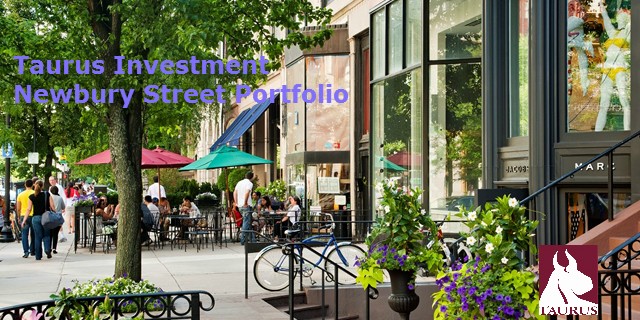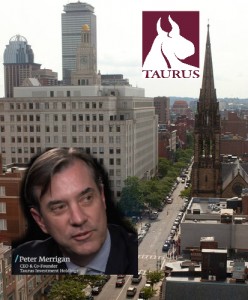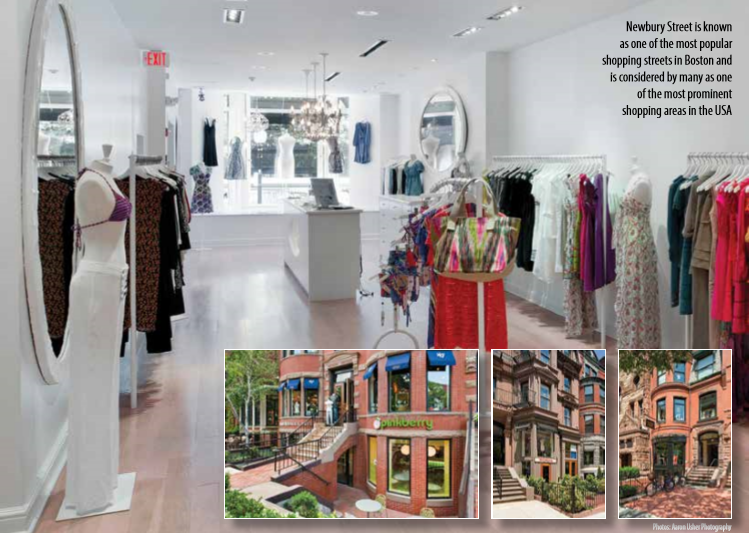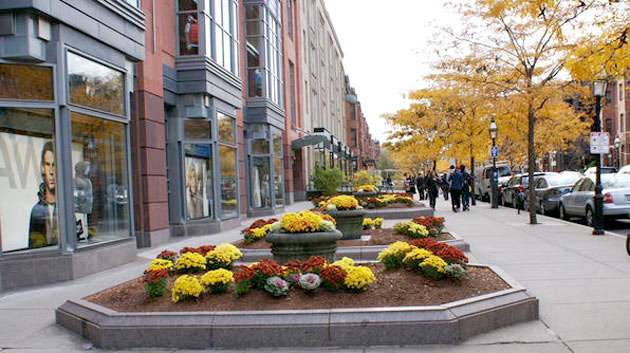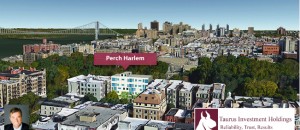“We established a strategy to invest in the only high street in Boston, where there was no single owner of more than 10 buildings on a 200 building street. We created an institutional product by building a critical mass of buildings to benefit from economies of scale and the creation of a brand. Institutional investors would not have been able or willing to buy building by building, but they were very much interested in buying the aggregated portfolio. In fact we created a ‘core' investment product.”
Peter Merrigan, CEO and Co-Founder of Taurus Investment Holdings, LLC, Boston Office
One of the most successful deals in recent years on the US real estate market involves Taurus Real Estate Holdings: approximately 18 months ago, Taurus sold its Newbury Street Portfolio in Boston for 226.5 million US-dollars to Jamestown Properties, a German provider of US property funds. The Portfolio consisted of 28 properties, spread across eight blocks. The portfolio made up more than 10 percent of the buildings in the quarter around Newbury Street. It is not just the relative size of the deal that is remarkable, but also the composition of the portfolio.
The Taurus philosophy of risk-minimization through diversification is clearly demonstrated in the structure of the portfolio. Alongside retail and catering space, which due to their heterogeneous characteristics are already very diversified, the portfolio also comprised office and residential floor space. This allows for potential fluctuations in revenue from one type of real estate to be compensated for by the other types.
“We are obviously thrilled with the successful conclusion of our ‘Newbury Line' investment strategy,” Taurus CEO Peter Merrigan says in the release. “Significant credit is due to both UrbanMeritage and the Taurus team for their dedicated and professional execution of the program,” says Peter Merrigan in celebrating the closing. As for the buyer, he characterizes Jamestown as an experienced operator “the city of Boston will be pleased to have as a steward for these important assets in the years to come.”
Excellent location, outstanding architecture
But let's take one step back and take a look at the location: it is not only those with an affinity for the United States that know of Newbury Street. It is by far the most popular shopping street in Boston, seen by many as one of the most prominent shopping streets in the US, comparable with Rodeo Drive in Los Angeles.
High end retailers such as Cartier, Chanel, Armani and Burberry have stores here, sharing the street with small boutiques and stylish restaurants and street cafes, all serving to draw visitors in their droves. The charms and attractions of Newbury Street are enhanced by its enchanting architecture and venerable 19th-century brownstones.
Maintaining this architectural legacy is not left to chance or market forces. The buildings are subject to strict regulatory requirements in order to preserve and protect the overall integrity of the historical “Back Bay” area of Boston, an area which really used to be a bay until having been reclaimed from the sea in the early eighteen hundreds. The strong regulatory protections mean that demolishing an existing building in order to make space for a new development is not permitted. Architectural modifications to existing structures are also very limited – although Taurus was able to obtain more concessions to expand floor space and redevelop its real estate than any other owner had managed in previous years.
The foundation of success
As previously mentioned, the portfolio covered more than 10 percent of the entire real estate around Newbury Street and Taurus was therefore the largest single owner of real estate in the area.
The advantage for Taurus: a critical mass which could be exploited positively prior to the sale of the portfolio to enable Taurus to shape the retail market and to create conditions which would be more than satisfactory for institutional investors. Two examples of Taurus' success in this are the standardization of lease agreements and the economies of scale in property and tenant management.
On top of this was a certain amount of market domination. For example, this allowed promises to be made to tenants that on a given block no space would be rented out to their direct competitors. When a jeweler or restaurant with outside tables is given an element of protection from competitors, it is easy to justify higher rents.
Analogous to a shopping center
Taurus also successfully established a brand image for its Portfolio, “The Newbury Line”. Alongside creating a unified identity, this consistent branding also enabled local retailers to engage in better and, above all, more uniform marketing strategies. In this approach, Taurus was able to transfer a strategy normally used by shopping malls to a shopping street. This unified approach under the Newbury Line banner resulted in an increase in revenues and additional economic stability for the tenants. Taurus had already selected its tenants based on a number of criteria which included revenues – the focus was on retailers who have a limited number of outlets in selected locations as these are less susceptible to fluctuations in local markets. With this recipe for success it comes as no surprise that the Newbury Portfolio practically “sold itself”, as CEO and founding partner of Taurus, Peter Merrigan, described the sale. ■

